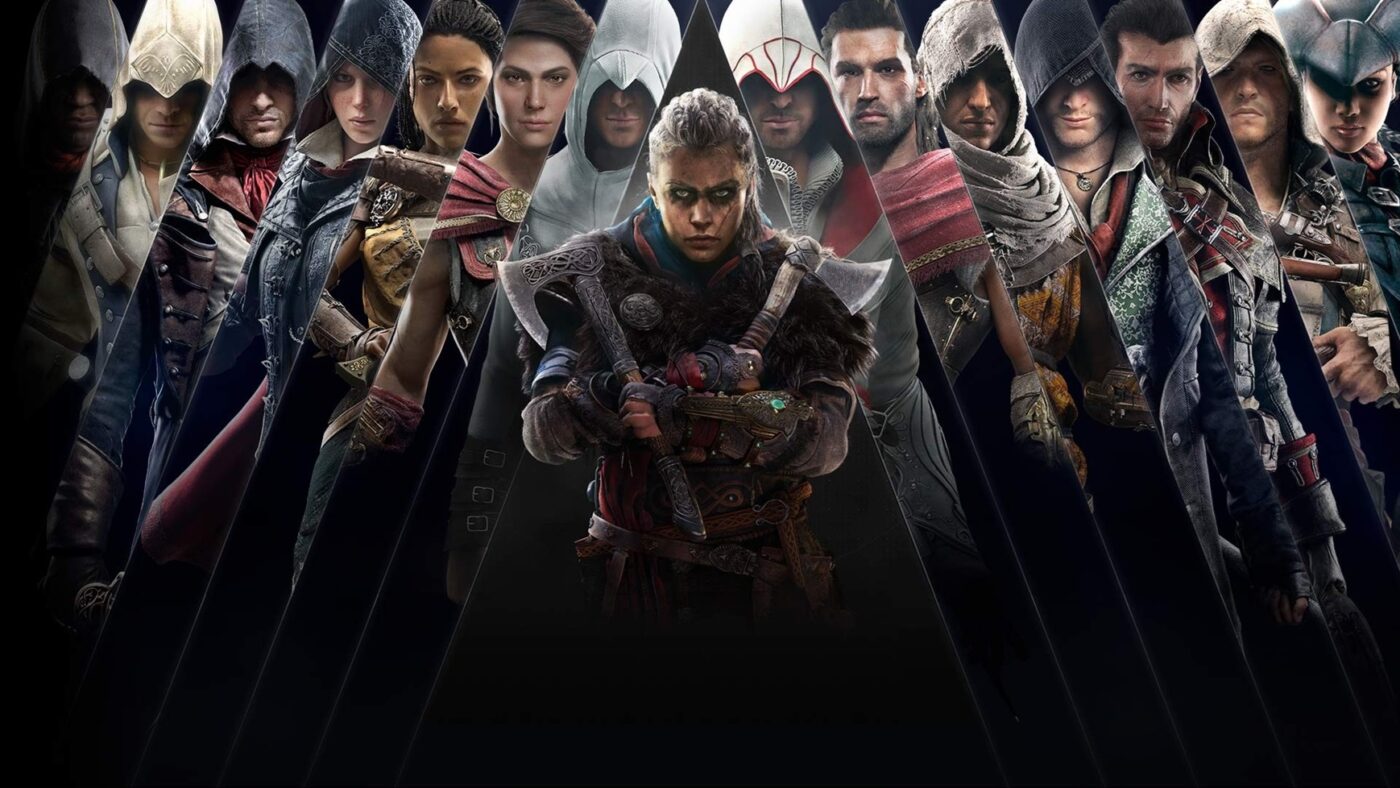There was a time when each new game in the Assassin’s Creed franchise felt like an event. Ubisoft’s historical action-adventure series once dazzled players with open-world exploration, fluid parkour, stylish combat, and centuries-spanning conspiracies. It helped define a gaming generation, yet somewhere along the way, the series lost its spark. Many who once eagerly awaited each release now lament that “Assassin’s Creed sucks now.” But how did this beloved franchise fall so far? More importantly, can it ever recover the magic that once made it great?
When the first Assassin’s Creed arrived in 2007, it was a revelation. It blended the parkour-inspired movement of Prince of Persia with a historical-fantasy storyline set during the Third Crusade. Players roamed medieval cities in the Holy Land, leaping across rooftops, picking off targets with hidden blades, and unraveling the secret conflict between Assassins and Templars. Though its repetitive mission design drew criticism, the game’s ambition captured imaginations. The idea of merging history, stealth, and action felt fresh and exhilarating.
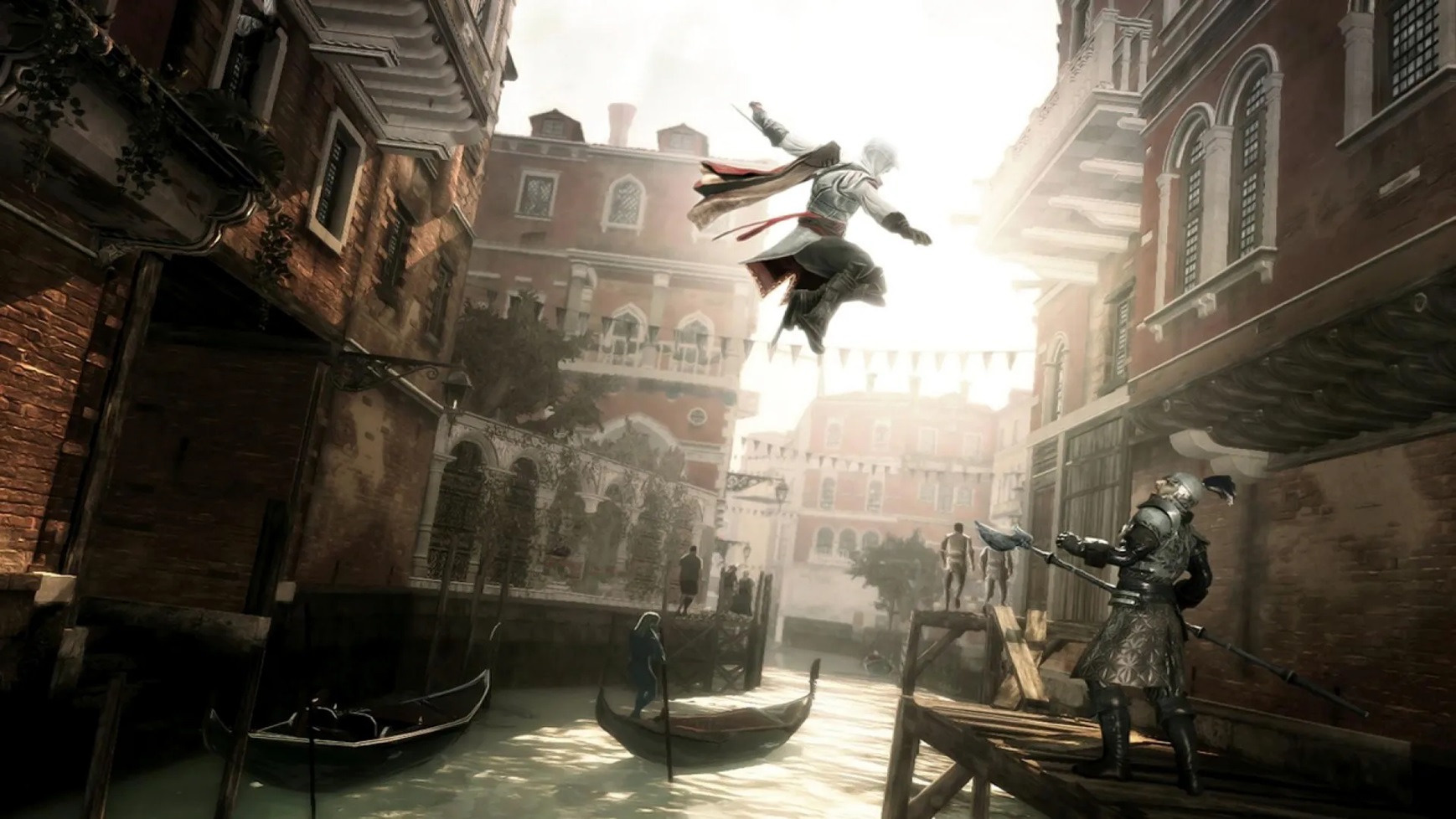
Things only got better with Assassin’s Creed II in 2009. By moving the setting to the Italian Renaissance, Ubisoft took the series to a new level of polish. Ezio Auditore became one of gaming’s most charismatic protagonists, and his adventures across Florence, Venice, and other stunning locales stood in stark contrast to the more limited environments of the first game. Mission variety improved, combat felt more refined, and the narrative introduced memorable figures like Leonardo da Vinci and Niccolò Machiavelli. Assassin’s Creed II set a golden standard—one followed closely by Brotherhood and Revelations, which expanded Ezio’s story without losing quality.
For a few years, each new installment in the Assassin’s Creed franchise felt huge. Fans eagerly awaited the next lush historical backdrop, the next leap forward in technology, and the next clue in the Desmond Miles storyline. From Renaissance rooftops to underground vaults brimming with ancient secrets, the sense of wonder remained strong. The gameplay, while sometimes repetitive, served a purpose, and the overarching mystery of the First Civilization—along with the Assassin-Templar feud—kept players hooked. Ubisoft seemed unstoppable.
The first big stumble came with 2012’s Assassin’s Creed III. On paper, it looked like a winner: the American Revolution provided a dramatic backdrop, and the new protagonist, Ratonhnhaké:ton (also called Connor), had a heritage that could bring fresh insights into colonial history. The result, however, was underwhelming. Many found the introduction painfully slow, while bugs and glitches marred the gameplay. The story also failed to wrap up Desmond’s modern-day arc in a satisfying way. Despite a few bright spots—like naval battles and the frontier’s natural beauty—Assassin’s Creed III felt unwieldy and disappointing.
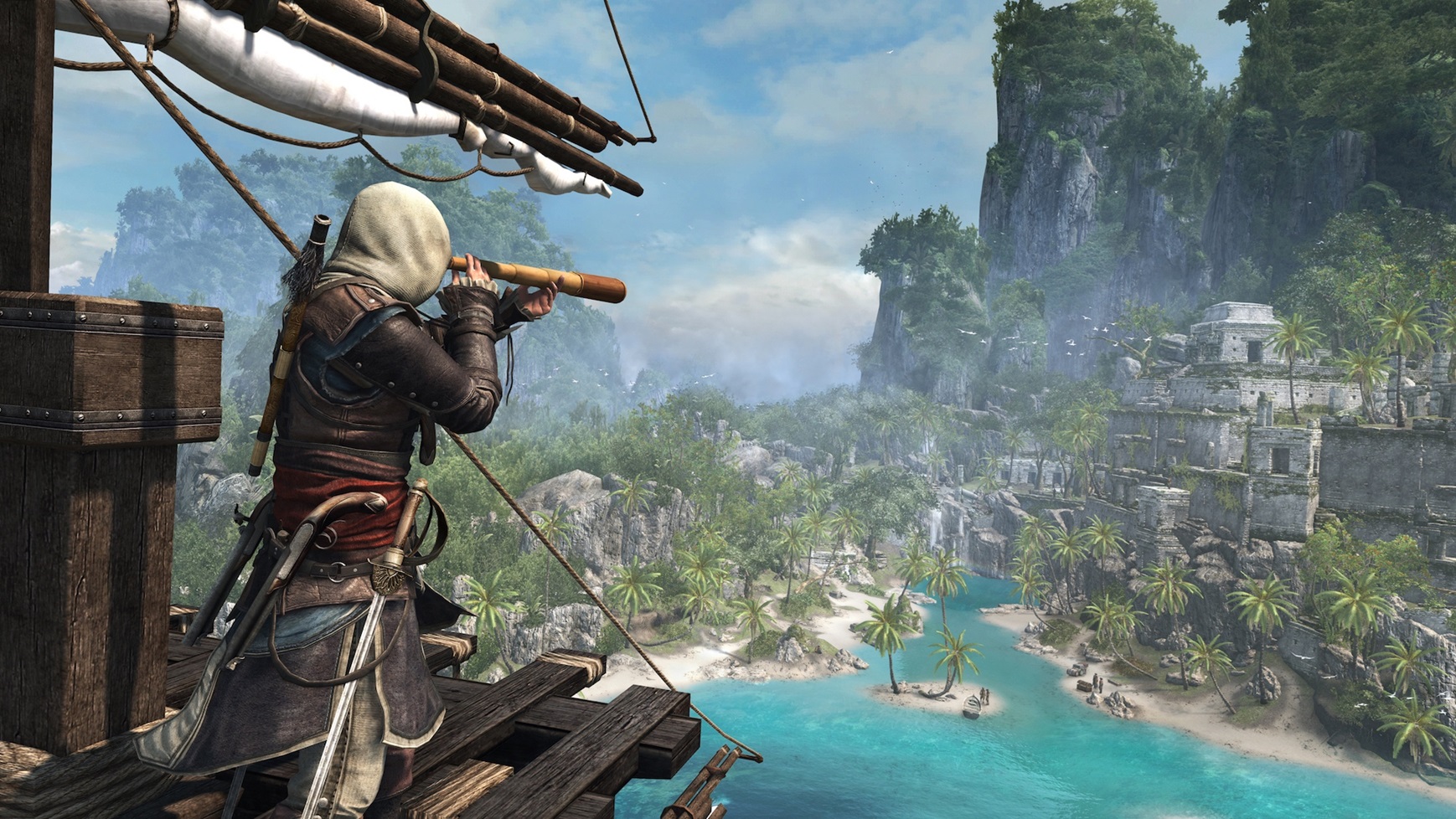
Ubisoft recovered slightly with Black Flag in 2013. This pirate-themed adventure let players sail the Caribbean as Edward Kenway, mixing ship-based exploration with classic Assassin’s Creed stealth, though in smaller doses. Yet the cracks were still visible. The story, while entertaining, diverged from the Assassin-Templar conflict, and the series’ identity felt more diffuse. Then came Unity in 2014, which launched in a notoriously broken state. Players encountered missing faces, frame-rate drops, server problems, and other technical disasters. Even once patched, Unity’s narrative and missions lacked spark. It squandered a French Revolution setting that should have been enthralling.
Unity became a turning point, revealing how Ubisoft’s annual release schedule forced multiple studios to churn out massive entries with little time for innovation or polish. Repetitive design, performance issues, and creative fatigue began to overshadow the magic that once defined the franchise.
After Unity’s fiasco and Syndicate’s lackluster sales, Ubisoft paused the Assassin’s Creed franchise to regroup. The series returned in 2017 with Assassin’s Creed Origins, which drastically changed the formula. Gone were many of the classic mechanics, replaced by role-playing elements like skill trees, loot, and a level-based combat system. Bayek and Aya’s journey across Egypt looked stunning, with a world that felt vast and alive. However, it also marked a shift away from what once defined Assassin’s Creed: social stealth, intricate urban parkour, and tight, authored missions.
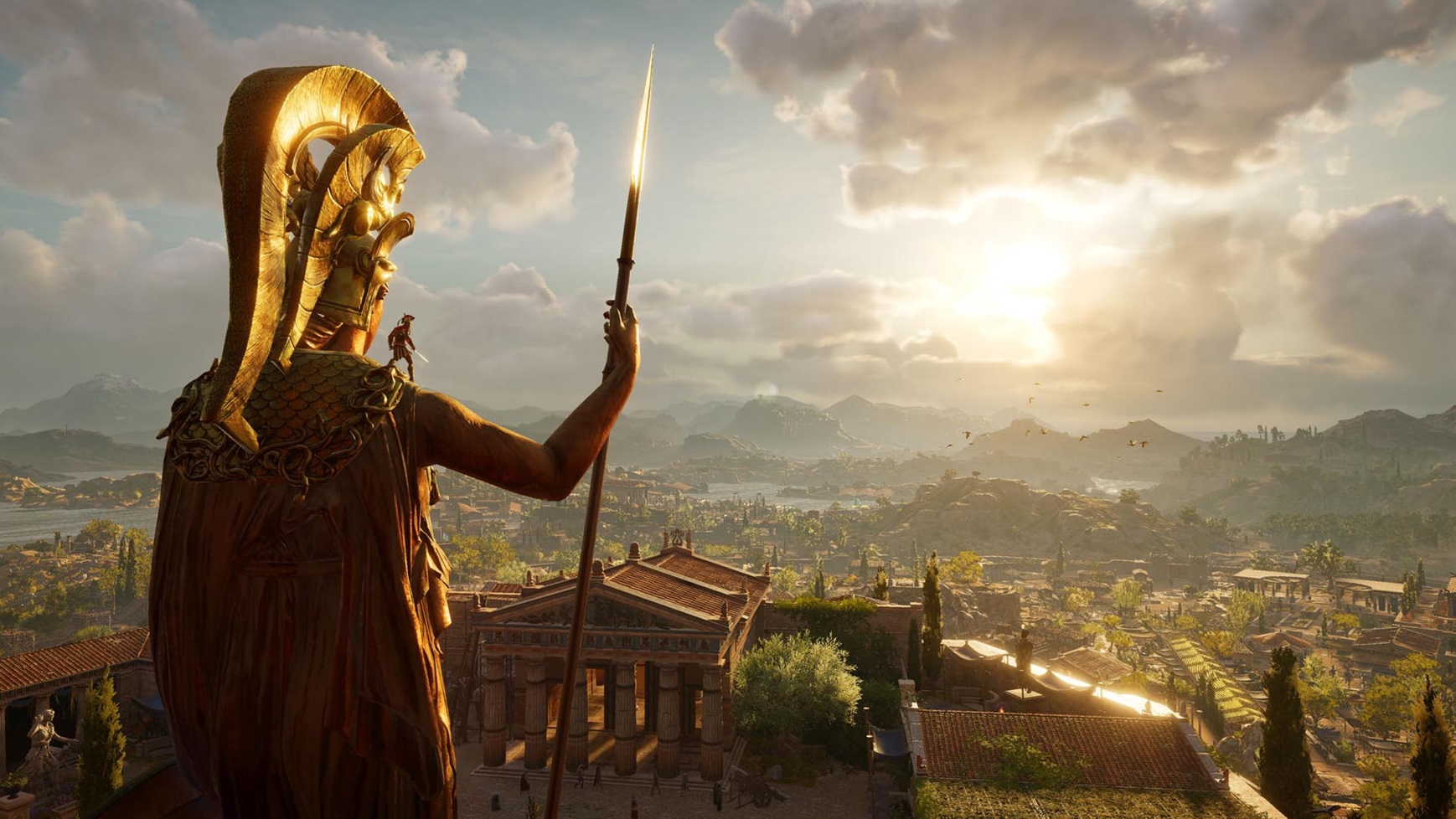
That trend continued with 2018’s Odyssey and 2020’s Valhalla. Both were immense, offering countless hours of exploration in ancient Greece and Viking-era England. Each overflowed with quests, points of interest, and endless gear to collect. Yet such size diluted focus. The series embraced a live-service mindset, encouraging players to roam enormous maps, clear outposts repeatedly, and grind for better weapons. The storylines became sprawling and less cohesive. The once-intriguing modern-day segments had dwindled into perfunctory cutscenes, while hallmark features like parkour and stealth took a back seat to open-world RPG design.
Even the protagonists of the new games in the Assassin’s Creed franchise felt distanced from the Assassins’ identity. Alexios or Kassandra in Odyssey were mercenaries, not true Assassins, and Eivor in Valhalla mostly led Viking raids. The conflict between Assassins and Templars, once so central, felt more like an afterthought. By trying to appeal to a broad market, Assassin’s Creed had lost what made it special.
Creative missteps were only part of Ubisoft’s woes. In 2020, reports of workplace misconduct, sexism, and abuse tarnished the company’s image. High-ranking creative leads who shaped Assassin’s Creed faced allegations of toxic behavior. These revelations showed how the relentless push for annual releases and profit harmed not just the games but also the developers. Morale suffered, and so did public confidence.
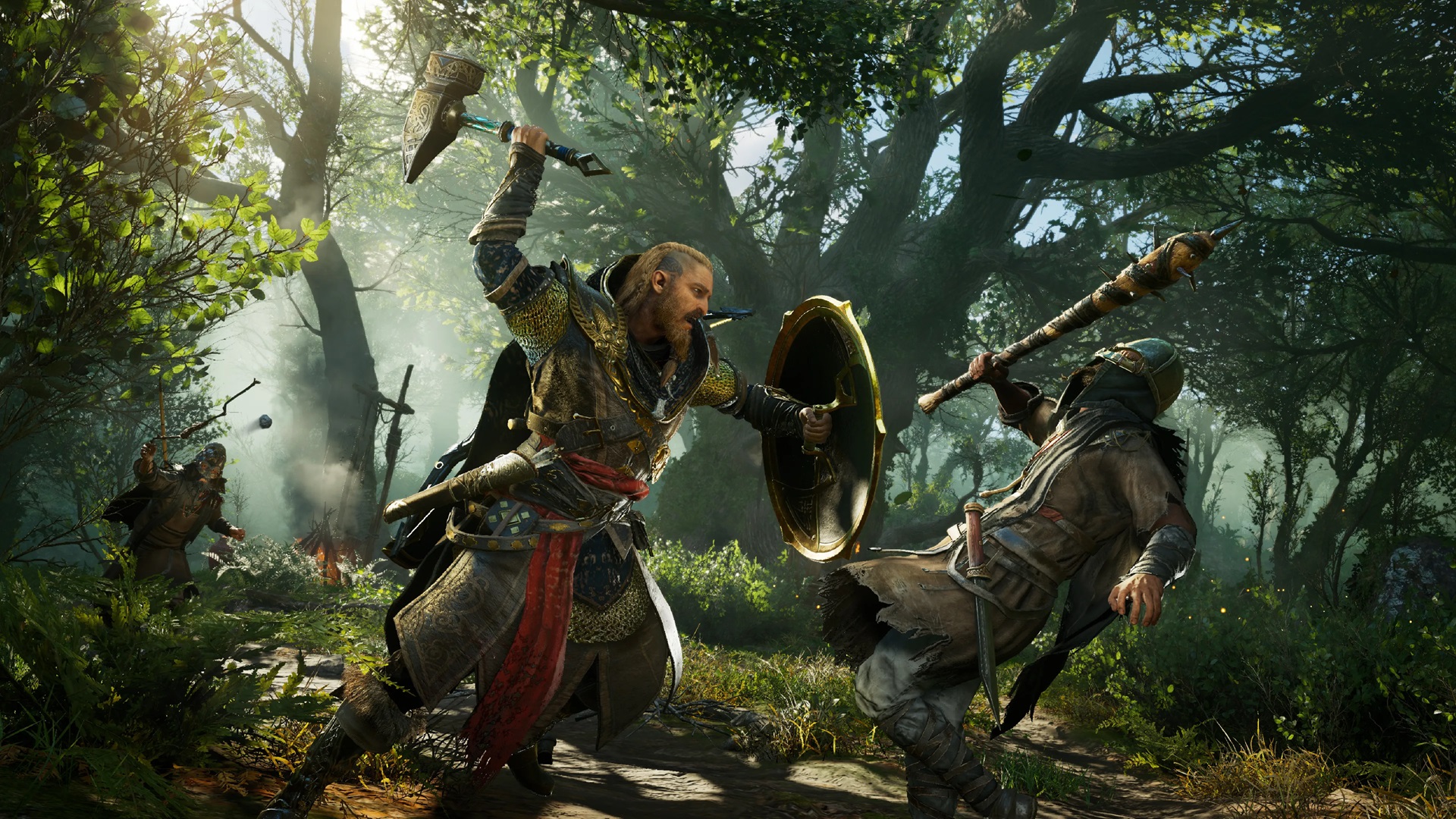
Financially,the Assassin’s Creed franchise was no longer the juggernaut it had been. While Origins, Odyssey, and Valhalla sold respectably, none recaptured the electric anticipation of earlier titles. Attempts to branch into films and other media, including the poorly received 2016 Assassin’s Creed movie, did little to restore the brand’s luster. By 2022, Ubisoft’s stock value had dropped by 38%. In desperation, the company announced a wave of new Assassin’s Creed projects—several games, a mobile spinoff, a standalone multiplayer experience, and a Netflix adaptation. On the surface, this seemed ambitious, but it also hinted at a frantic scramble for relevance.
So, is there any hope for Assassin’s Creed? Can a franchise that lost its identity rebound? The recent Assassin’s Creed Mirage attempted a course correction by dialing back scope. Set in Baghdad, Mirage promised a more traditional approach, emphasizing stealth, parkour, and a denser urban setting. While it delivered a smaller, more focused game, many fans felt it remained too influenced by the RPG era. Though a move in the right direction, Mirage ultimately did not provide the dramatic return to form that longtime followers yearned for.
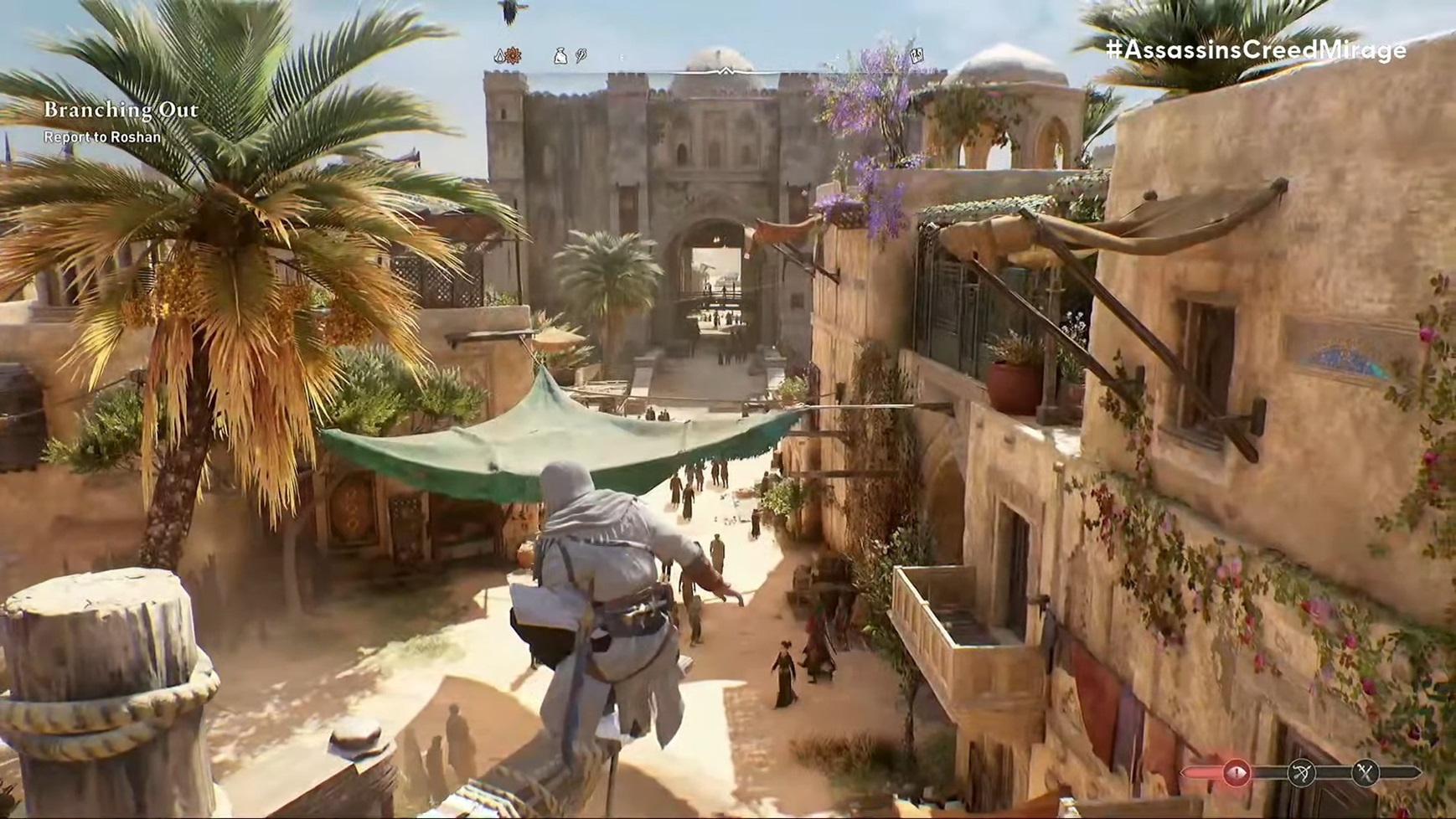
True redemption requires a top-down reevaluation of development processes. The idea of yearly releases must be dropped permanently. Huge, rushed titles stifle creativity, hamper quality control, and risk alienating fans with repetitive content and technical woes. Instead, Ubisoft should devote time and resources to crafting cohesive, polished installments that embrace the spirit of earlier games. A healthier work environment is also essential. Toxic conditions and oppressive deadlines discourage innovation. Letting smaller, focused teams take the reins for each project, rather than distributing tasks across numerous studios, could ensure a clearer vision.
Above all, Assassin’s Creed must rekindle its core elements. That means intricate parkour, social stealth, and thoughtful mission design. It means spinning tightly woven conspiracies with compelling modern-day implications, or at least giving modern segments more substance. If the series wants to maintain a present-day storyline, it should matter—like it did during Desmond’s arc.
The upcoming titles Assassin’s Creed: Shadows and Assassin’s Creed Hexe might herald a new era. Shadows is rumored to be set in feudal Japan, a setting fans have requested for years. Early reports suggest a heavier focus on stealth, reminiscent of the classic entries. If executed properly, a shinobi protagonist navigating medieval Japan could capture the essence of clandestine intrigue. Yet one promising concept does not guarantee a revival. Ubisoft must prove it can sustain this renewed focus across multiple games. Hexe, set in the Holy Roman Empire, will provide the next test. If Shadows establishes a stealth-driven framework and Hexe refines or expands it, the series could regain momentum.
Longtime fans wonder if Ubisoft will commit to meaningful transformation or revert to formulaic design once pressure subsides. The shift toward open-world RPG mechanics likely emerged from market trends, but chasing trends often yields hollow experiences. After years of sprawling content, Assassin’s Creed might benefit from leaning into tighter design, recapturing what made Assassin’s Creed II and Brotherhood so beloved.
Witnessing Assassin’s Creed lose its spark has disheartened those who remember its early promise. The RPG-heavy entries are not without their moments—sailing in Black Flag, climbing pyramids in Origins, or exploring Greek isles in Odyssey can still be breathtaking. However, such marvels often fade beneath bloated systems and repetitive tasks. Parkour, once central, has become a simplified climb-anything mechanic, and stealth tends to play a secondary role. Meanwhile, the modern-day storyline that once served as connective tissue has dissolved into cameo appearances.
To rebuild, Ubisoft must address the cycle of annualization and the corporate culture that fueled it. Creativity requires room for experimentation and iteration. A massive development pipeline driven by deadlines and segmented among numerous studios is unlikely to yield a cohesive vision. Instead, smaller teams should have the freedom to shape each game more personally.
Despite the franchise’s missteps, Assassin’s Creed still commands a devoted audience. Why? Because its core concept—traveling through lavish historical periods, melding stealth and combat, and unraveling cryptic plots—remains compelling. Even the more recent games offer glimpses of the old spark. The thrill of discovering lost temples or encountering legendary figures endures, and the series still provides experiences unmatched by other franchises.
Nostalgia for the glory days drives requests for Ubisoft to refocus. Critics do not complain simply to nitpick; they yearn for the series to rediscover what made it captivating. Underneath the extra layers of RPG mechanics lies the potential for something extraordinary. If Ubisoft draws from nearly two decades of lessons, it could fuse the best of old and new in a way that resonates with both veterans and newcomers.
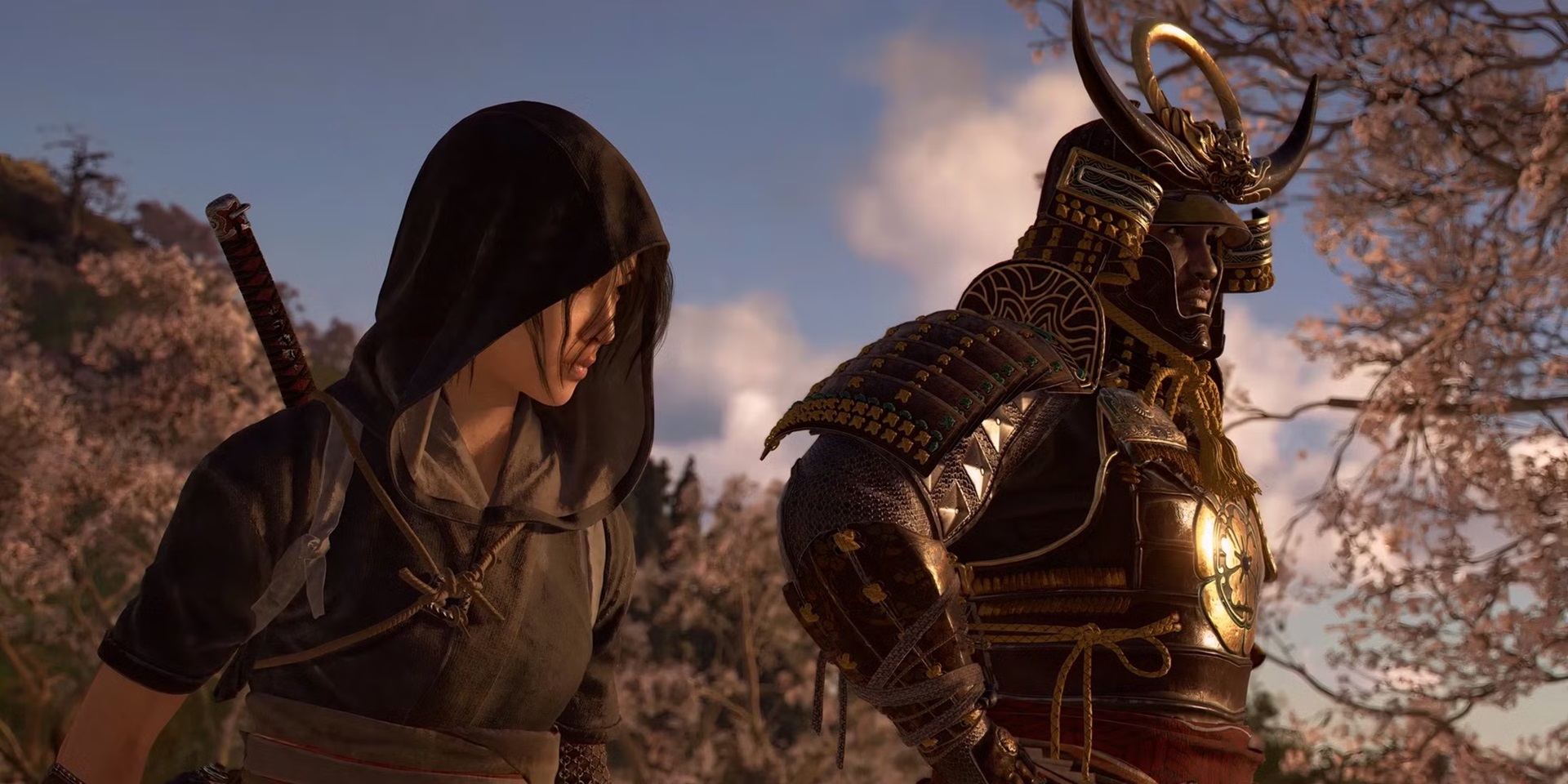
With Assassin’s Creed: Shadows and Hexe on the horizon, there is a cautious sense of optimism. These games may represent a renewed focus on stealth, historical intrigue, and more cohesive storytelling. Mirage offered a partial shift in that direction, though many found it insufficiently bold. Yet it showed that Ubisoft is listening to the calls for a tighter, more classic approach.
To succeed, the publisher must give these projects the time and resources they require. Overstuffing them with microtransactions, meaningless side tasks, or expansions that dilute the core experience risks repeating past mistakes. Instead, the design should revolve around stealth-based encounters, engaging side quests, and narratives that intertwine compellingly with historical events. Making players feel like true Assassins—masters of secrecy and subterfuge—would be a welcome return to form.
Ultimately, a healthier workplace culture is needed to nurture this vision. Games often reflect the environments in which they are made. When creativity thrives, it leads to passion projects that resonate with audiences. Reshaping corporate structures, while daunting, is essential for consistent quality and renewed public faith.
The evolution of the Assassin’s Creed franchise is a cautionary tale. It began as a groundbreaking union of history and freerunning, soared with Assassin’s Creed II and its sequels, then fell into the trap of annualization. Rapid releases and corporate mandates fed a cycle of diminishing returns, leading to lackluster launches like Unity. Many fans see this as a direct result of prioritizing short-term profit over polished design. Reflecting on that cycle underscores what made the early entries memorable: manageable scope, thoughtful progression, and cohesive worlds. Ezio’s trilogy remains beloved because each installment felt substantial yet connected. Ubisoft balanced new features with the series’ core identity, rather than piling on mechanics that diluted the stealth and parkour. If the company rekindles that design ethos—tempering expansive open worlds with careful curation—it can build fresh games that evoke the series’ best qualities.
One of the biggest criticisms directed at recent installments is their tendency to forsake hallmark features. Parkour, once a skill-based system, now often feels automatic. Social stealth, once a creative tactic, plays only a marginal role. The ideological clash between Assassins and Templars, formerly woven into every mission, barely registers. Without these pillars, the series risks blending into a sea of generic open-world adventures.
RPG systems can enrich the experience, but they must support, not overshadow, stealth and traversal. Players initially fell in love with the thrill of stalking targets from rooftops and blending into crowds. That sense of being an urban predator, using cunning and agility, defined Assassin’s Creed. Relegating those aspects to secondary status leaves a void. A balanced approach, merging selective RPG elements with tight stealth mechanics, could rejuvenate the series and help it stand apart from competitors.
Another element fans of the Assassin’s Creed franchise yearn for is the return of a modern-day storyline with real stakes. In the early entries, Desmond Miles’s arc provided a framework connecting historical segments, creating a sense of urgency as players discovered how past events shaped the present. Over time, that aspect dwindled into near irrelevance. Restoring a coherent modern subplot, whether through a new protagonist or a revamped system, could bring back the epic feel of a centuries-spanning battle between shadowy factions. Ensuring the modern-day material is truly integrated, rather than tacked on, would keep players invested in both timelines. This narrative throughline gave the series a distinctive identity, emphasizing that each historical hero’s actions echoed into the future.
The story of Assassin’s Creed is one of meteoric success followed by slow decline. What began as a daring combination of historical intrigue and freerunning became a sprawling series hamstrung by rushed development, creative confusion, and corporate missteps. Yet the heart of Assassin’s Creed still beats. Traversing lavishly realized historical locales, wielding hidden blades, and uncovering age-old conspiracies can be magical. Recent Ubisoft moves—including halting annual releases and exploring smaller projects like Mirage—hint that a revival is possible. Upcoming titles such as Assassin’s Creed: Shadows and Hexe may prove whether the franchise can refocus on core stealth gameplay, carefully crafted narratives, and meaningful connections between past and present. Although one promising game cannot reverse years of structural issues, it can spark a positive trend. If Ubisoft commits to a balanced approach that respects employees, fosters innovation, and honors the pillars that made Assassin’s Creed stand out, the series could rise to prominence again. Gamers who once loved it are ready to give it another chance. The choice rests with Ubisoft: cling to shallow expansions for quick gains, or invest in a careful, rewarding design philosophy that resonates with fans. Time will tell if the hidden blades can return to form. For now, there is a faint but genuine hope that this iconic franchise can reclaim its rightful place in gaming’s pantheon, reminding us all why we once believed so strongly in the Creed.

